TOM MCEVOY INTERVIEW
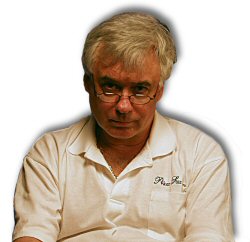
OLYMPUS DIGITAL CAMERA

We arrived at Tom McEvoy’s Las Vegas home in the early evening and did not know what to expect from the 1983 World Series of Poker champion. We were greeted at the door by an informal Tom McEvoy, the legend himself. He invited us in and the interview began with Tom warming up to our questions with a brief history of his early days in Las Vegas leading up to his WSOP win. He proudly showed us an original painting of the 1983 final table with himself and Doyle Brunson. Tom is a soft spoken former accountant that takes the game of poker very seriously. He is quite intelligent and has written more books on poker than any other player. Following is Tom McEvoy’s answers to our questions:
Prof: So what are your current projects?
Tom: I am finishing my 11th book “Beat Texas Hold’em” which has already pre-sold 30,000 copies. This book will not only cover traditional poker games and tournaments, but offers a lot of material on on-line playing as well. The other big project I’m working on is the pilot episode for “Final Table Challenge.” It’s going to be very different from the existing shows, the different players will come in through low buy-in events, from 10 different casinos, this will give new players, or players without a lot of exposure an opportunity to make it onto the program. This show will offer a lot more depth and analysis then existing programs. The episode will be filmed at Sam’s Town on September 14th and I’ll be one of the color commentators.
Prof: I just hope you won’t call a pair of 2’s “the real hand”
Tom: Well, I plan to say anything I damn well please.
Prof: What are your thoughts on on-line poker and the players it’s bringing to the tables?
Tom: On-line players are very different, but stand a good chance in these larger tournament formats such as the WSOP final event. Events with over 1,000 players are rare in traditional tournaments; but on-line it’s not uncommon to see a field of 1,700 players. This last weekend there were two tournaments I wanted to play in and I couldn’t decide on one so I played in both, one was on Pokerstars and I think it had 1,672 participants, and the other on Party Poker had I think 1,603. The on-line player learns survival skills that allow them to survive the grind in live tournament play. I think this is a big advantage of the on-line player, they have developed these survival skill.
At the World Series this year I only recognized two faces at my table, I couldn’t even put names to them. There were about 7 players that should have had “Internet” stamped on their forehead. I won my seat this year in a Pokerstars qualifier. One guy, was really interesting, he only had one move. He would either fold, or push all of his chips into the pot and close up his hood then lay his head on the table… I wonder where he learned this from?
Prof: On the subject of the World Series, for the 2005 event the rumor is they plan to cap the top prizes, I heard at 6 million and pay a lot more places, what do you think about this?
Tom: I think it’s a great idea, this will encourage a lot of people to enter the event, speculation is that there will be 5,000 for next years championship event, I think this is realistic, I also heard they’re thinking about raising the entry fee, this is a really bad idea, they won’t attract the field with an increased buy-in.
Prof: On-line poker right now is in an ambiguous legal state, it’s illegal to operate an on-line casino in the US and under the Wire Tap and Patriot Act it could even be illegal to play.
Tom: Technically, you’re breaking the law when you play on-line, but during prohibition you were breaking the law when you took a drink. They couldn’t possibly lock up everyone that took a drink during prohibition, and they can’t lock up everyone that plays on the internet sites. They are far more likely to go after the internet sites that run sports books as opposed to on-line poker. Almost all of these companies are based in Costa Rica, the Cayman Islands. What we really need to do, instead of fighting internet gaming they need to tax and regulate it. I know it’s common sense, but when would we ever accuse the government of having common sense. Not only that but, poker has a skill factor that makes it so it can be beat. It would be nice if it were taxed and regulated so that so that we would know the sites were honest rather then these mysterious off-shore sites, but the on-line casinos would be insane to cheat the players because they make so much money regardless and cheating could kill the site. Besides often you’re playing more then one table at a time, I can barely handle four, and when you have a player at more then one table they’re generating more revenue then a player at a brick and mortar casino.
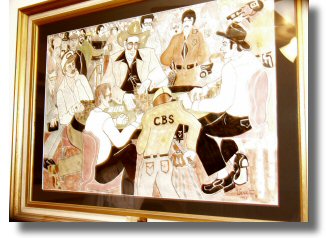
Flipchip: In traditional poker there is a lot of skill, that’s the reason we see the same people at the final table in tournaments all the time, what about on-line?
Tom: There is skill, the problem is players change their handles and there are so many more of them you don’t meet the same people. You can’t look them in the eye; in fact, TJ Cloutier refuses to play on-line at all. I think there is a lot to on-line poker, even though you can’t see your opponents. Sometime you can tell by their hesitation if they have a hand or not, there are actually on-line tells. For example people will autocheck, click the autocheck button, so when you see the table check a lot of times that’s an indication they don’t have anything, you can fire a bet and get them to fold. This is not all original; I think Moneymaker talked about it not long ago. There are so many players online that have never read a poker book, these people think they can play Ace-Jack with all their chips and win. The big problems with on-line players are they overplay their hands, they make all kinds of mistakes. They over bet the pot they under bet the pot, I see this in every online game. The worst move I have seen is a player making a raise the size of the big blind in a no-limit game; if there is a more mindless play in no limit hold’em I haven’t seen it. You drive nobody out of the pot, it re-opens the betting, maybe they’re trying to make the pot bigger, but if that is their intent there are far better ways to do this. If you have a big pair for example, you’re not raising enough to accomplish the goal which is to thin out the field. You see a lot of total inexperience on-line, you would think with these players playing for real money they would invest in a good book… they would have the cost of the book back with one pot.
Flipchip: I read a book that you co-authored with TJ Clouiter and the drift of it was that TJ accused you of thinking too much…
Tom: You’re Right
Flipchip: … that you tend to over analyze the play.
Tom: You have a point, I think about poker way more then I should, even when I’m not thinking about poker it’s always on the back of my mind. I’m a theoretician, not a mathematician, a theoretician. A lot of the mathematicians that play professionally don’t seem to have a good grasp on the other elements of poker, the psychological elements playing the players, they are pure math players; there are so many variables that I always start out the answer to a poker question with “It depends,” the type of player, the size of the pot, your position, previous betting, it depends.
Prof: Okay, “Dick at Call, Raise or Muck It asked about your role in the first non-smoking tournament.”
Tom: That is one of my favorite stories! It all started with the Showboat, which became the Castaways, I was recruited to put on the first non-smoking tournament in 1998. In the mean time, before that tournament occurred, Harrah’s bought the property and the two guys that took over, Ill never forget their last names, Zimmermen and Zammerman if there are any two more misguided people in the world of poker I haven’t met them. They had all kinds of issues with it. Basically they shot me down wanting to know why they should be the ones to have the first non-smoking tournament. That was the entire draw. So it didn’t work out and that’s when I approached Gatewood at Sam’s Town, we put together the same tournament and it was held in November of 1999, this was the first non-smoking tournament in Las Vegas, the first in all of Nevada for that matter. There was some strong opposition to this at first, a lot of the smokers threatening to boycott the casino, but they didn’t have to give up smoking, just give it up during the tournament. So after they saw there wasn’t a major drop-off in attendance, a lot of the other places fell in line and started holding non-smoking tournaments. I think the non-smoking tournaments in Calfornia at the same time also helped a lot. It got so the smokers liked it better to have the non-smoking tournaments. The biggest challenge was the Horseshoe itself, the Binion clan was smokers, I got to be casual friends with a young Benny Behnen and I said look, I’ll make you a deal, if you make the World Series of Poker non-smoking, I’ll give you poker lessons. The 2002 World Series of Poker was the first non-smoking WSOP. It’s just a case where the majority rules and by this time there were a lot more non smokers in poker than smokers. It’s also common sense, it’s a health hazard and in some places where you already had environment hazards, like the Horseshoe crud, this was presenting a major health risk to the players. My efforts helped prove to the industry that a non-smoking tournament could be successful. I remember the last time I was in a tournament in Tunica, it was smoking and after 30 minutes I was sick and I was deathly sick after four days. I left, swore I would never set foot in the state until the tournaments were non-smoking. And now non-smoking tournaments are more successful, with players that couldn’t attend because of health issues coming back. Some of the new players can’t believe that tournaments once allowed smoking, it was only five years ago that all the tournaments were smoking. I got to the point where I just couldn’t be around the smoke. The Internet solved that, it’s always non smoking. These smokers should be considered pariahs, they think they have a right to smoke. They don’t have a right to jeopardize my health, they can go outside. By the way it’s proven beyond a shadow of a doubt that the addiction to poker is greater then the addiction to smoking. These hard core chain smokers threatened to quit, but came right back.
Prof: Could you give me a bit of your own poker history?
Tom: I started playing professionally in 1978, the best thing that ever happened to me was getting fired from my job that year and that gave me the opportunity to pursue poker full time. I spent about 6 months flying back and forth and during one 5-10 game I made over 1,000 dollars, well, this is over three times what I was making at my accounting job and more then the President of the company made (he made about 50,000 a year). I really started playing when I was about 5 years old with my Grandmother. I remember when I was in grade school; I used to play the other kids for their lunch money. I’d win all of my friend Johnny’s lunch money and his mother would call my mother. My Mom always said the same thing “If little Johnny is dumb enough to lose his money there is nothing I can do about it.” His mom would forbid him to play for about a week or so and then he would be begging to get back into my school yard game.
Prof: The life of a professional poker player must experience significant fluctuations and ups and down far exceeding a traditional job, has this been your experience?
Tom: Absolutely! I don’t know of any professional poker player that hasn’t gone broke, even the very best. I went broke after winning the World Series, but not because I lost it all in high stakes games, I went broke because I made some bad financial decisions, gave a lot to deadbeats, and was taken by scams. I’m just now really recovering from all of that.
Tom: At the World Series there were only two faces I recognized for the table I was playing at, two.
Prof: John at badblood poker wants to know how much of your success you attribute to reading other players books?
Tom: I read every poker book I can find. Even the really awful ones have something to offer, I try to take at least one really good idea or concept away from every book I read. The first poker book I read was Dolly Brunson’s “Super System”
back when it was called “How to Win 1,000,000 playing poker.” When I went to buy the book from his little publishing company he was there and I told him one day I would play against him. In fact I’ve been at a table with every World Series of Poker champion, both living and dead, except Greg Raymer, I guess I’ll have to get into a game with him to keep my record intact.
Prof: Last question, from Cardsspeak, are the strategies from your book still applicable to the larger field, 1000+, seen in tournaments today.
Tom: You can’t control anything beyond your own table, all you have to do is focus on your own table, the strategies are still applicable. The only thing that changes is there are some new survival strategies for these very large fields, but the basic strategy doesn’t change with a larger field size.
Flipchip: I have one final question, which player do you respect the most?
Tom: I guess it would be TJ. Yea, it has to be T J Cloutier. He is always tough plays a solid game and even though he has never won the World Series he has won more Series money than most anyone else.
The interview ended, we thanked our gracious host and took our leave. Tom had given us an evening of his time and answered all of our questions. He is a great spokesperson for the game and is the most prolific writer of poker books in the business. His tournament expertise is well outlined in his books and is a must read for anyone seriously considering playing the game. He provides personal one-on-one instructions to players and remarked about how much he enjoys teaching and writing. Tom McEvoy is one of the true gentlemen of the game and forever a Champion.
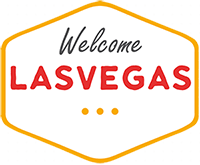
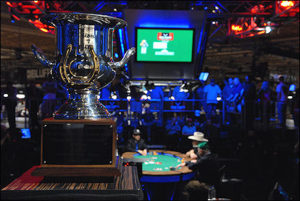


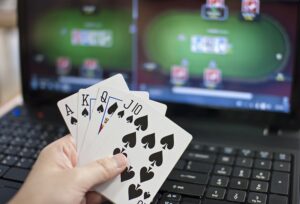


 Beranda
Beranda
 Whatsapp
Whatsapp
 Daftar
Daftar
 Promosi
Promosi
 Telegram
Telegram